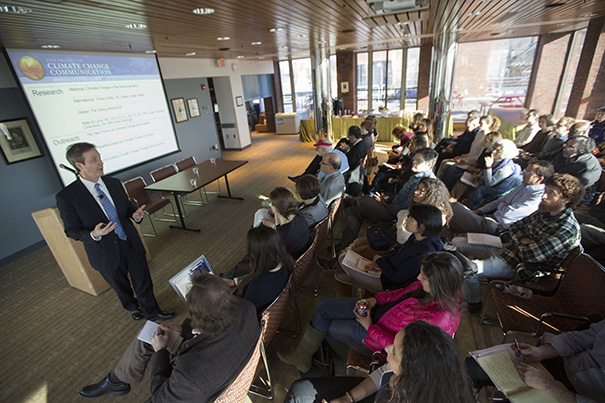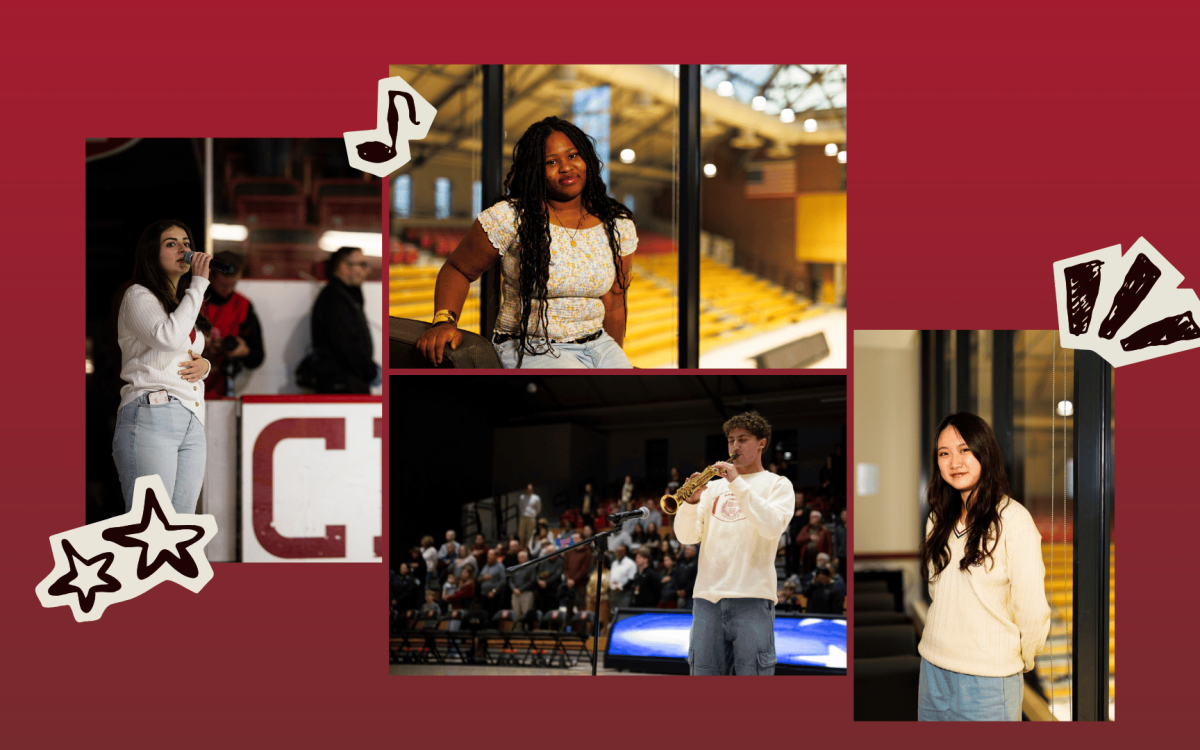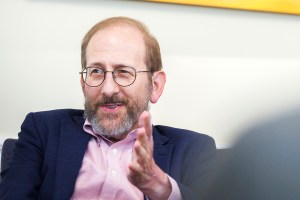Science & Tech
-

Rethinking — and reframing — superintelligence
Microsoft researcher says separating AI from people makes systems dangerous and unproductive
-
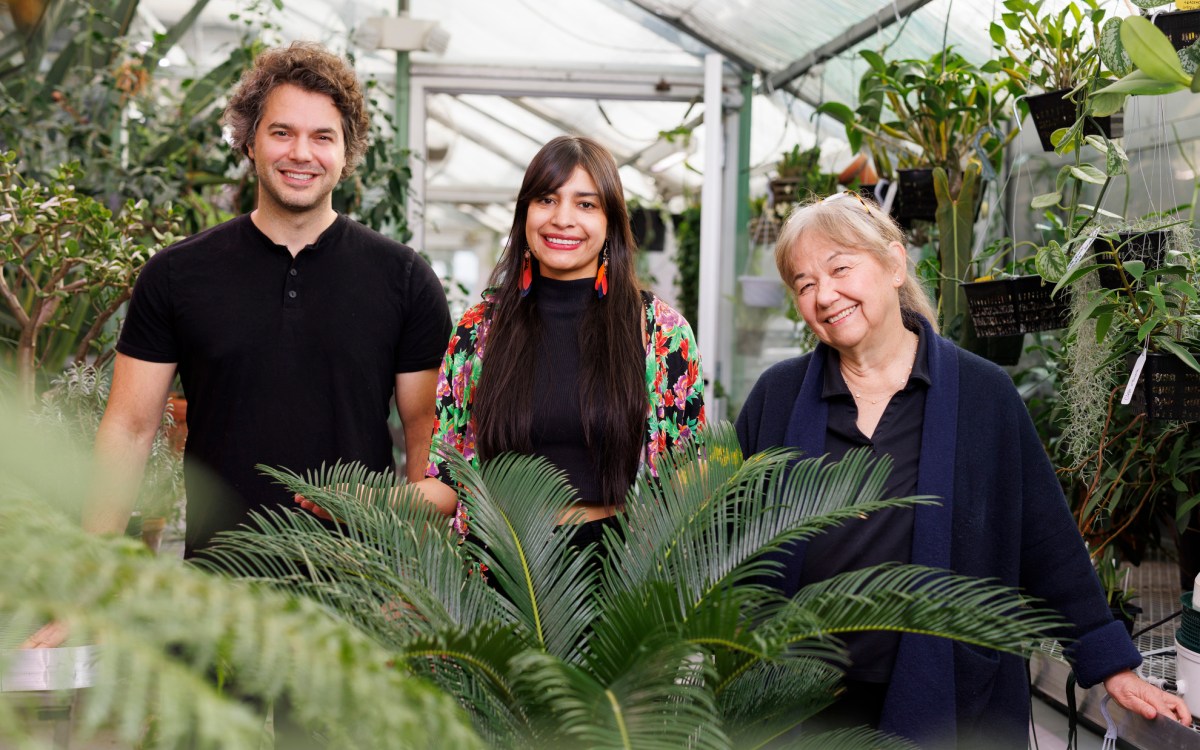
First, male gets heated up, then female, and then, you know
Study shows infrared radiation from plants serves as invitation to pollinating insects
-
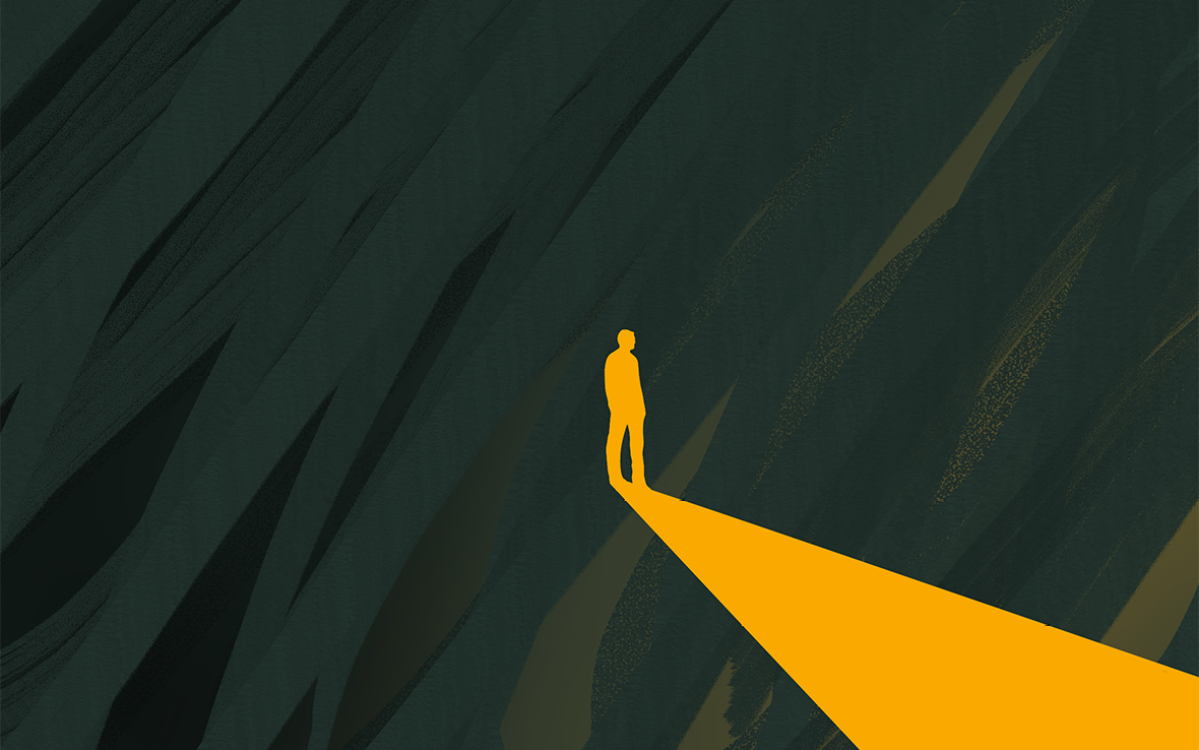
‘Consciousness’
What we know and don’t know about the life of your mind
-
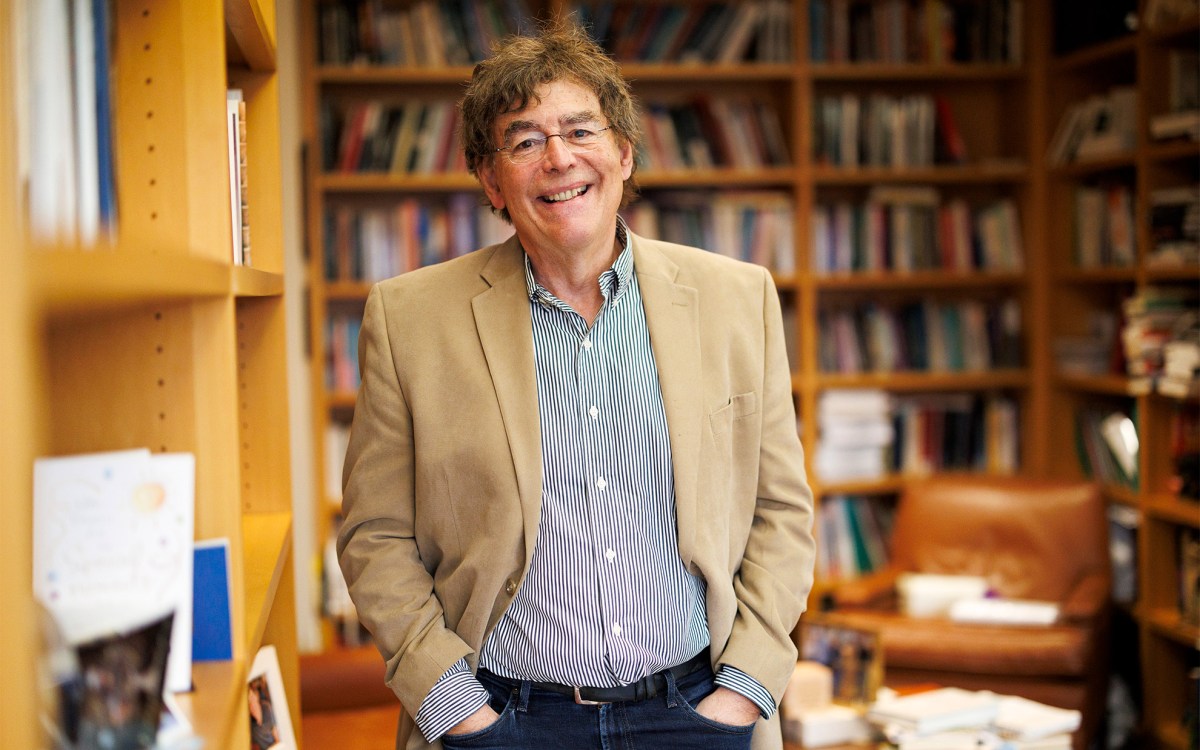
Science needs contrarians, and contrarians need support
Institute of Quantitative Social Science initiative tailored to researchers exploring provocative ideas
-

Cracking the code of why, when some choose to ‘self-handicap’
New research also offers hints for devising ways to stop students from creating obstacles to success

-
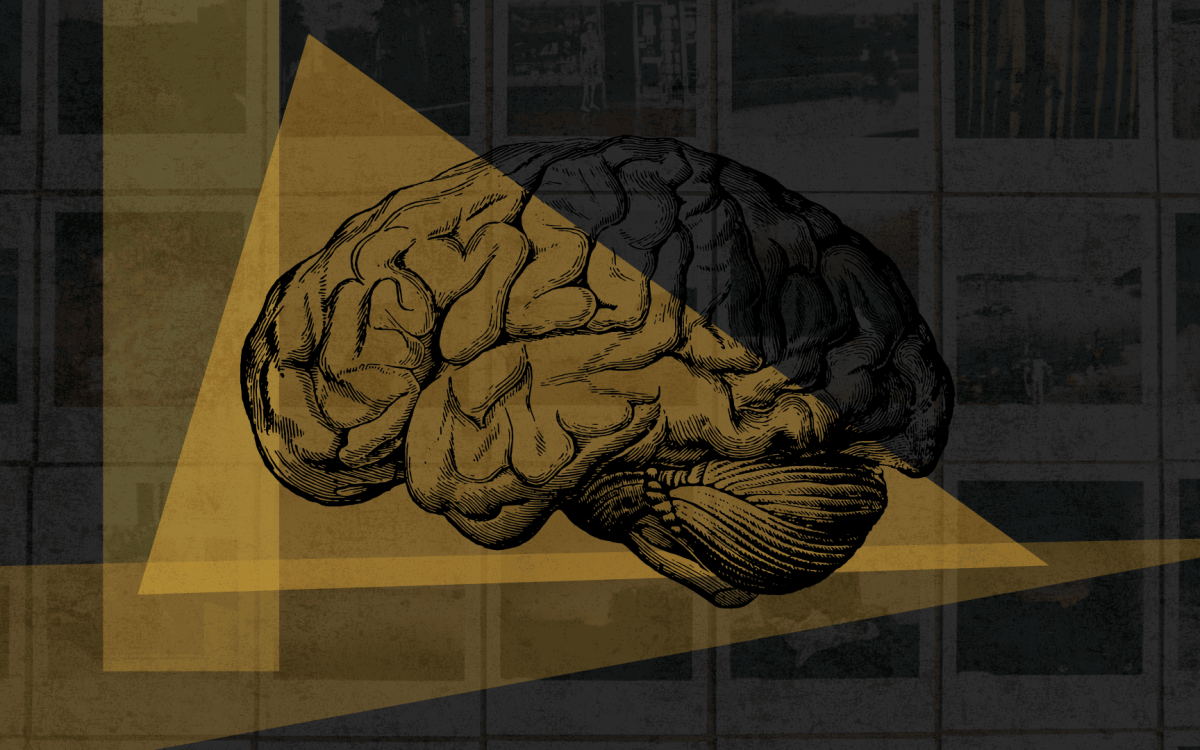
How memory works (and doesn’t)
In podcast, scientists explain why remembering is more reconstruction than replay
-
Avoid the ‘science of yesterday’
A Dutch water expert with a federal role in rebuilding after Hurricane Sandy brought his wisdom to Harvard this semester.
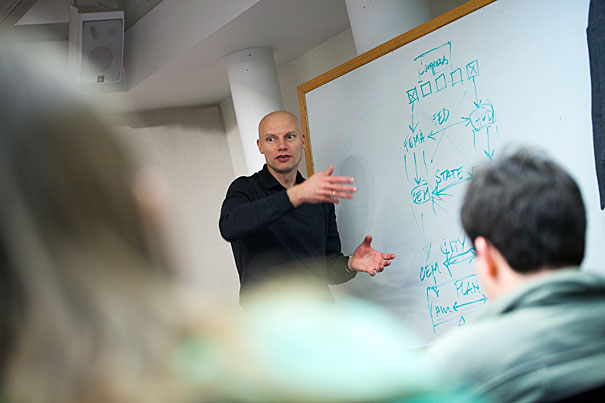
-
Astronomers create first realistic virtual universe
Astronomers have created the first realistic virtual universe using a computer simulation called Illustris. Illustris can re-create 13 billion years of cosmic evolution in a cube 350 million light-years on a side with unprecedented resolution.
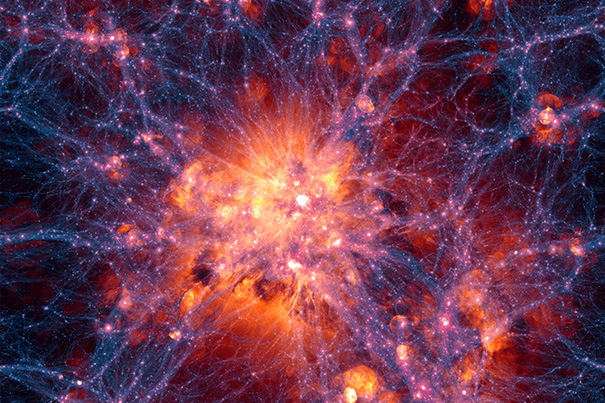
-
Colder winters add to colony collapse
Two widely used neonicotinoids — a class of insecticide — appear to significantly harm honeybee colonies over the winter, particularly during colder winters, according to a new study from Harvard School of Public Health.
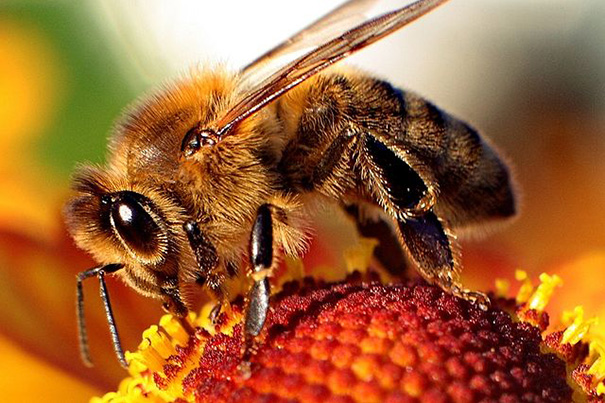
-
When engineering meets art
Music blared, LEDs blinked, and jaws dropped Tuesday at the SEAS Design and Project Fair, a celebration of creative problem-solving by students at the School of Engineering and Applied Sciences…
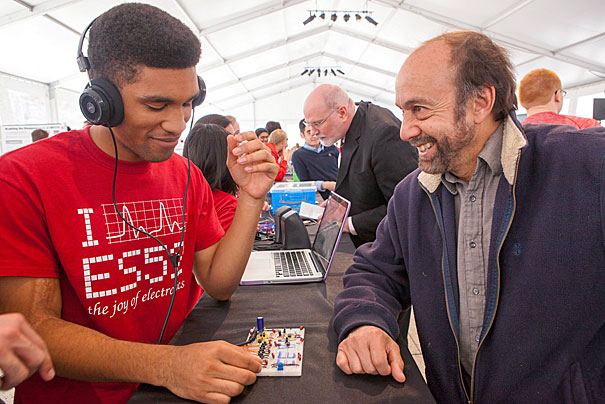
-
Another step in the wrong direction
Climate specialists came together at the Geological Lecture Hall to consider a dangerous milestone in carbon dioxide levels.
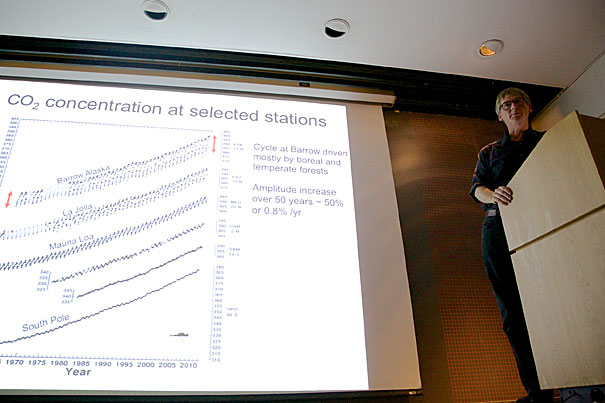
-
Rising CO2 poses significant threat to human nutrition
At the elevated levels of atmospheric CO2 anticipated by around 2050, crops that provide a large share of the global population with most of its dietary zinc and iron will have significantly reduced concentrations of those nutrients, according to a new study led by Harvard School of Public Health.
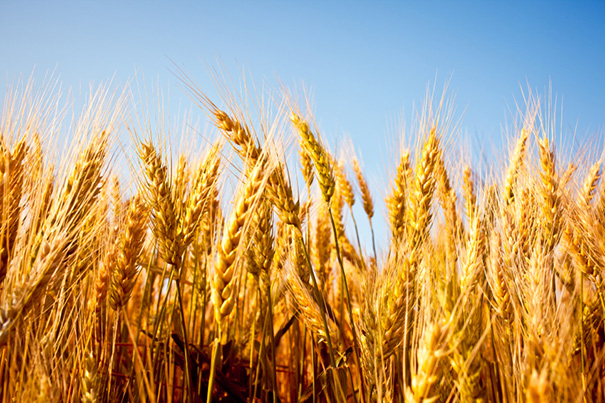
-
Promising solution to plastic pollution
Harvard’s Wyss Institute researchers find that a fully degradable bioplastic isolated from shrimp shells could provide a solution to planet-clogging plastics.
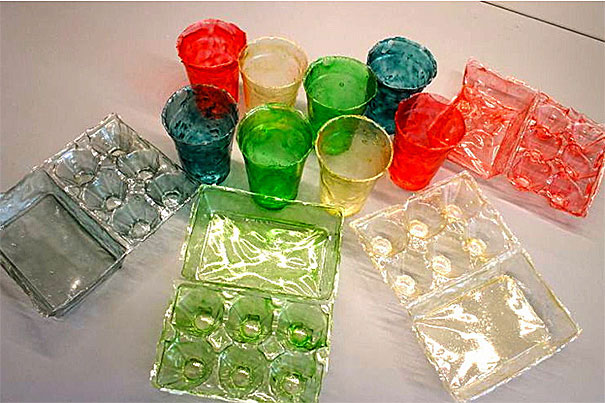
-
Managing an aging populace
Aging, health care, and the challenges facing the globe’s women were the focus of a symposium marking the 50th anniversary of the Harvard Center for Population and Development Studies.
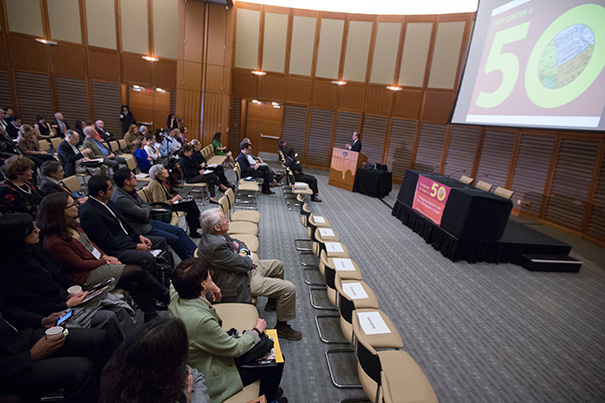
-
Life, reflected in the dead
Why do we care for our dead? The answer is not religion, but a primordial set of ethical obligations played out over thousands of years across countless cultures, an author says.
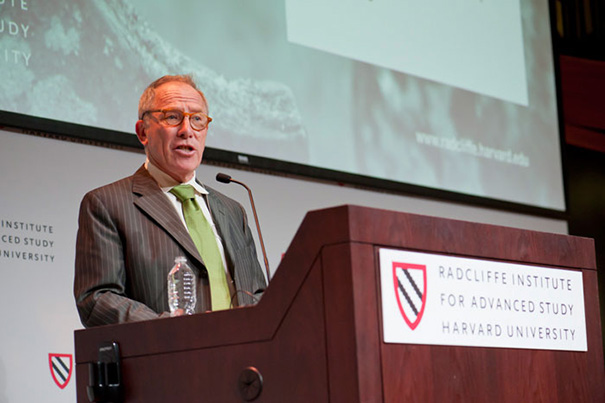
-
Kovac makes a ‘Big Bang’ on Time’s list
Time magazine has named John Kovac to the 2014 Time 100, its list of the 100 most influential people in the world.
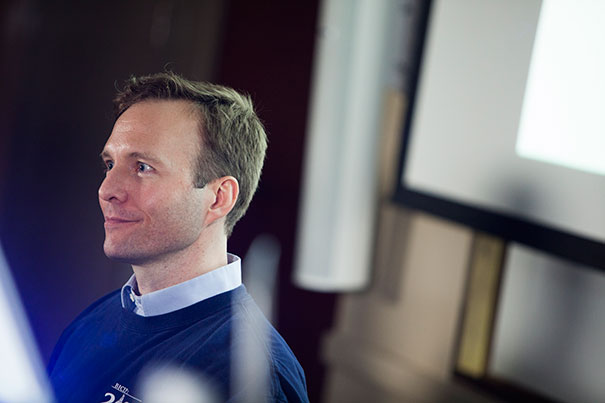
-
Tackling climate change through law, policy
Since it was founded in 2006 by Professor Jody Freeman, Harvard Law School’s Environmental Law and Policy Program has become the leader in its field, with renowned faculty, innovative courses, a lauded clinical program that gives students hands-on training in real cases. The program’s new Policy Initiative provides nonpartisan legal analysis and policy advice to federal and state agencies.
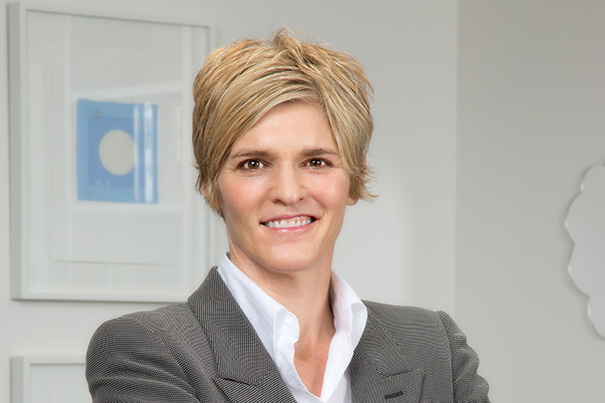
-
Flipping the switch
Harvard researchers have succeeded in creating quantum switches that can be turned on and off using a single photon, an achievement that could pave the way for the creation of highly secure quantum networks.
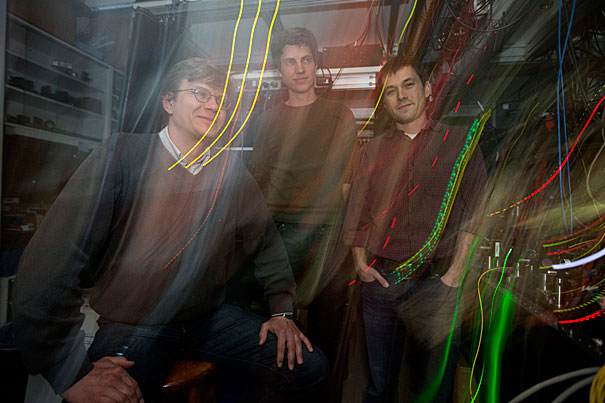
-
The urban ocean
A new course on how oceans are “urbanizing” underscores a decade-long Harvard theme: that cities have to cope with the multiple challenges of water — of there being too much or too little.

-
Annals of climate
Professor Michael McCormick will lead a project aimed at constructing the most detailed historical record yet of European climate.
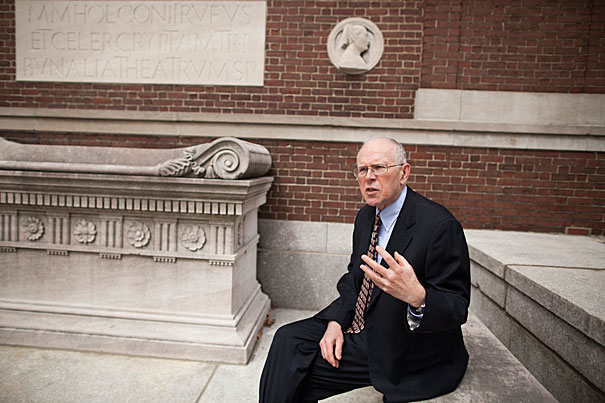
-
When forests take the hit
After analyzing tree rings — and 400 years of history — researchers from Harvard Forest have indicated ways in which seemingly stable forests could abruptly change over the next century in the wake of climate change and drought.
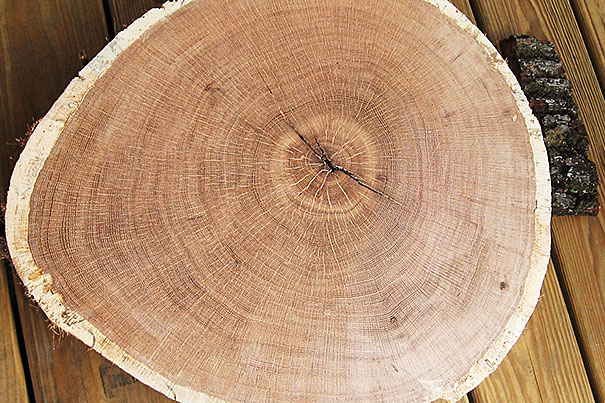
-
MRI, on a molecular scale
A team of scientists led by Professor of Physics and of Applied Physics Amir Yacoby has developed a magnetic resonance imaging (MRI) system that can produce nanoscale images, and may one day allow researchers to peer into the atomic structure of individual molecules.
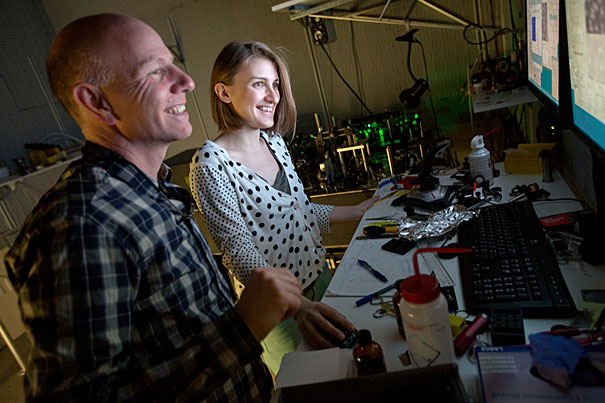
-
Rapid-fire exchange
Faculty, staff, and students gathered from around campus for a discussion about social media at Harvard. While civil in tone, the exchange began with participants throwing Marlon Kuzmick’s softball question right back at him.

-
Progress on sustainability
Harvard University has made significant progress in reducing its greenhouse gas emissions, according to a report released by President Drew Faust, who announced the next steps that the institution will take to meet its goal of cutting emissions 30 percent by 2016.
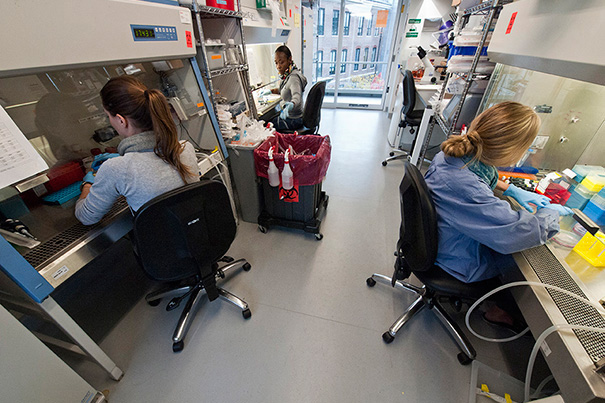
-
Down to the details, a giant in computing history
University leaders gathered at the Science Center to celebrate an update of the Harvard Mark I exhibit.

-
Advising on climate change
In addition to conducting research and teaching about climate, energy, and the environment, Harvard faculty members also serve as expert advisers to policymakers, putting their science to work to improve laws and regulations and to foster understanding between the worlds of government and academics.
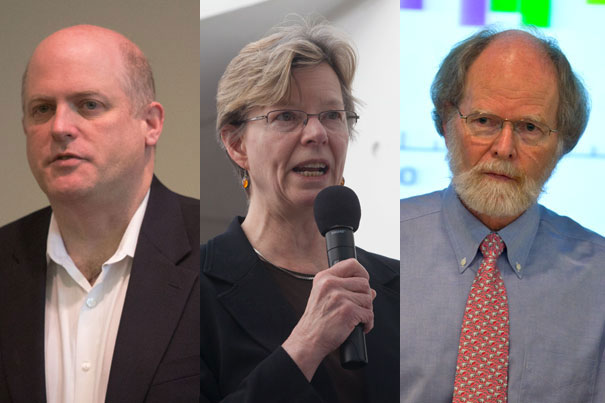
-
Books meet bytes
Experts came together at Radcliffe to peer into the future of digital library collections.
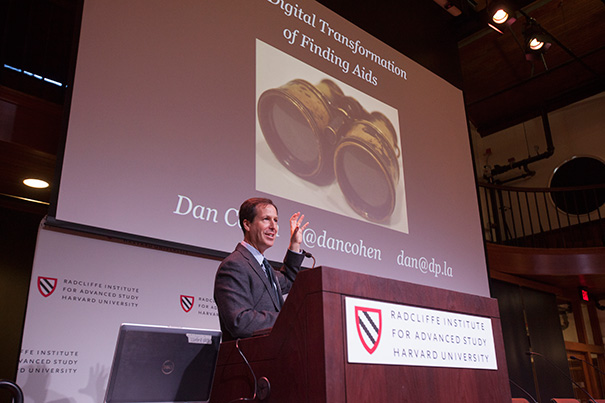
-
Less energy, more creativity
Two teams of students at Harvard’s Graduate School of Design provided a close look — part celebration, part cerebration — at two house designs that won international competitions.
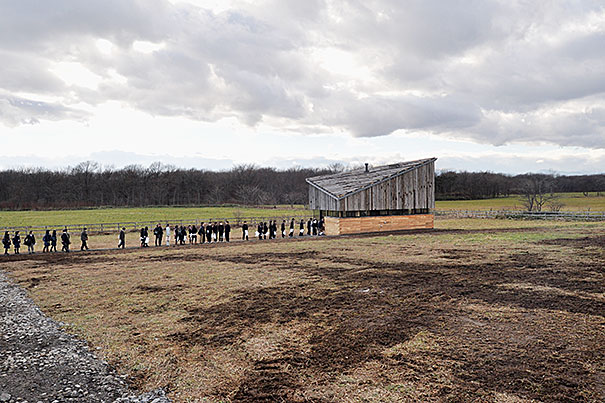
-
Making labs greener
Changes in design and behavior are key to making labs more energy-efficient, said experts at a Harvard symposium.
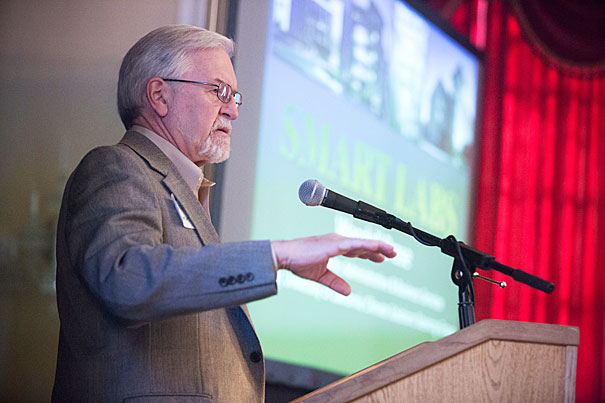
-
For big data, big thinking
A new course on how to handle big data designed by Assistant Statistics Professor Luke Bornn immerses students in a competitive environment, driven by peer learning, to understand how to handle the massive data sets common in real-world problems.
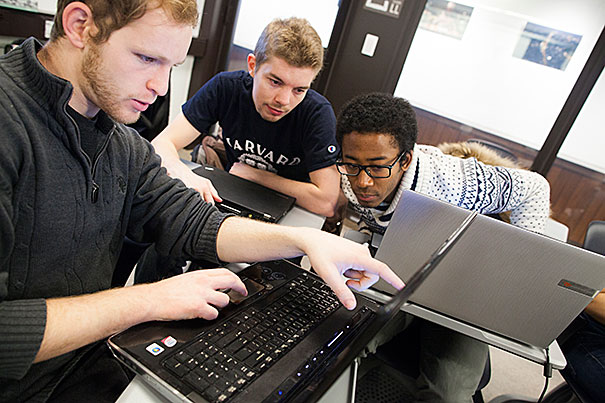
-
Backing the Big Bang
In breakthrough, astronomers find evidence of speedy ‘cosmic inflation’ of universe.
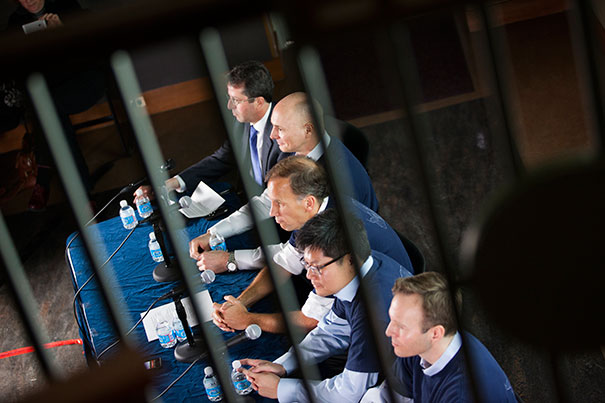
-
Putting the ‘estimate’ back in estimates
Professor M. Granger Morgan of Carnegie Mellon wants to bring the uncertainty back to forecasting, he said in a Harvard talk.
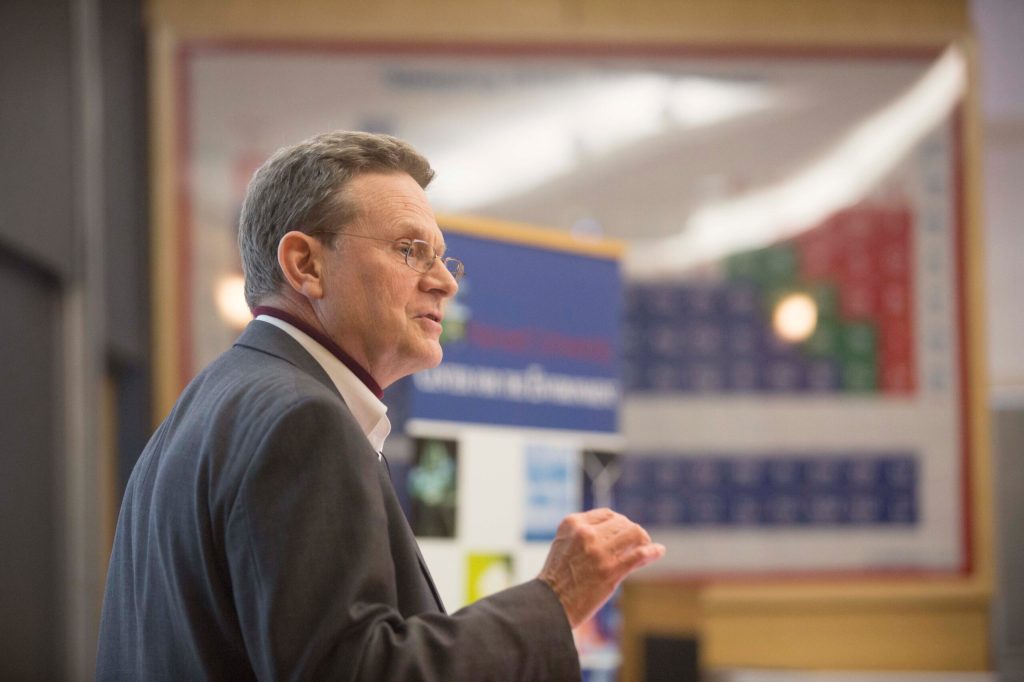
-
The melding of technology
Former MIT President Susan Hockfield discussed the power of technology’s ongoing convergence during a session at the John F. Kennedy Jr. Forum.
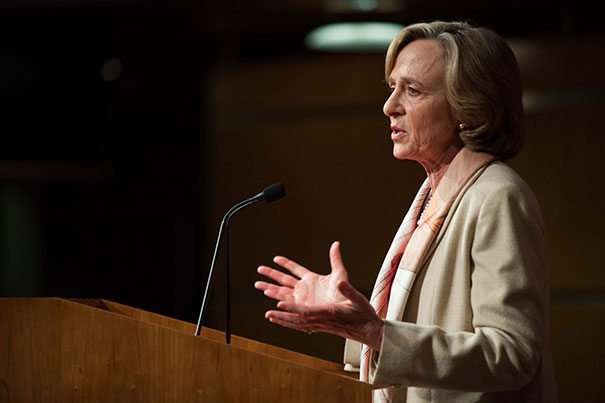
-
Roomy cages built from DNA
Scientists at the Wyss Institute for Biologically Inspired Engineering at Harvard University have discovered a way to build self-assembling cages made of DNA. The cages are the largest stand-alone DNA structures made to date, and one day may be able to deliver drugs or house tiny bioreactors or photonic devices inside the human body.
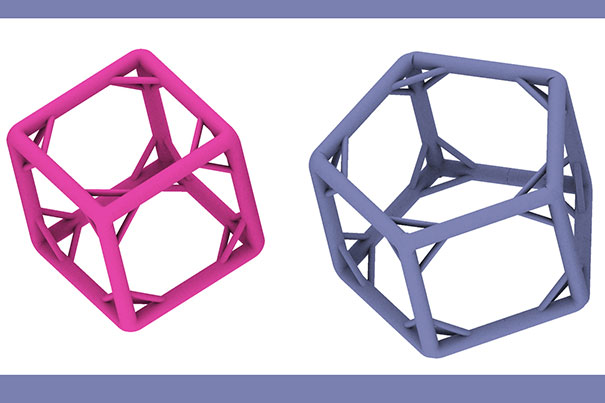
-
Wearing technology
MIT Professor Rosalind Picard and a team of researchers at the MIT Media Lab have created a wristband that can gauge a person’s emotional response to stimuli or situations by tapping skin conductance, an indicator of the state of the sympathetic nervous system, which controls the body’s flight-or-fight response by ramping up responses like heart rate and blood pressure.
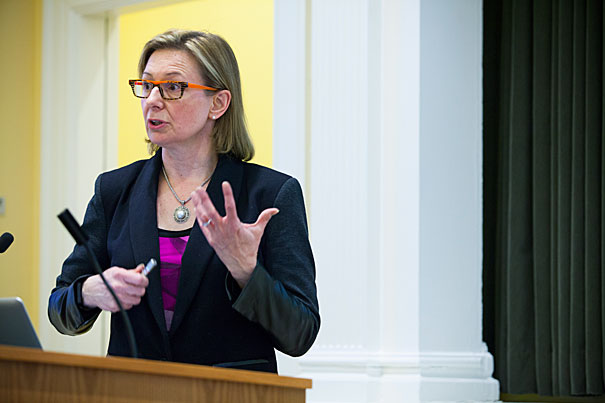
-
A national perspective on climate change
Director of the Yale Project on Climate Change Communication Anthony Leiserowitz spoke at a Harvard Kennedy School seminar called “Climate Change in the American Mind.”
